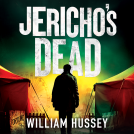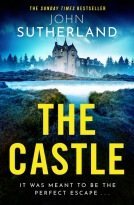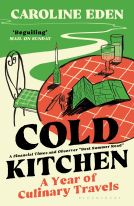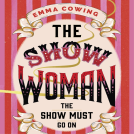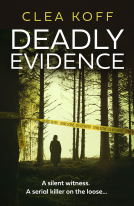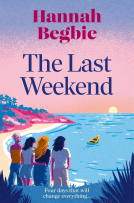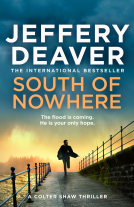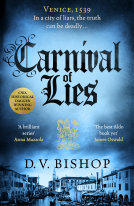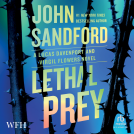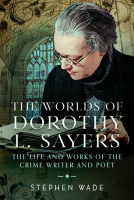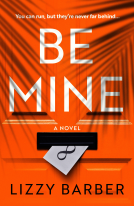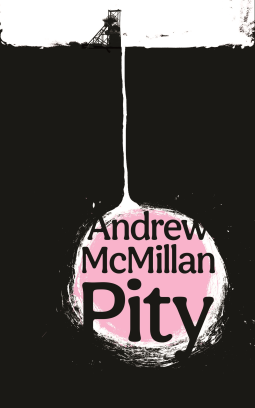
Pity
by Andrew McMillan
This title was previously available on NetGalley and is now archived.
Send NetGalley books directly to your Kindle or Kindle app
1
To read on a Kindle or Kindle app, please add kindle@netgalley.com as an approved email address to receive files in your Amazon account. Click here for step-by-step instructions.
2
Also find your Kindle email address within your Amazon account, and enter it here.
Pub Date 8 Feb 2024 | Archive Date 8 Feb 2024
Talking about this book? Use #Pity #NetGalley. More hashtag tips!
Description
The town was once a hub of industry. A place where men toiled underground in darkness, picking and shovelling in the dust and the sleck. It was dangerous and back-breaking work but it meant something. Once, the town provided, it was important, it had purpose. But what is it now?
Brothers Alex and Brian have spent their whole life in the town where their father lived and his father, too. Still reeling from the collapse of his personal life, Alex, is now in his middle age, and must reckon with a part of his identity he has long tried to mask. Simon is the only child of Alex and had practically no memory of the mines. Now in his twenties and working in a call centre, he derives passion from his side hustle in sex work and his weekly drag gigs.
Set across three generations of South Yorkshire mining family, Andrew McMillan’s short and magnificent debut novel is a lament for a lost way of a life as well as a celebration of resilience and the possibility for change.
Advance Praise
‘A deeply felt and rich enactment of love, loneliness, and personal triumph that leaves an indelible mark on modern Queer life. With the poet's precision and capacious resistance to resolution, wherein doubt is transformed into force, McMillan's first foray into fiction is a magical one.’
OCEAN VUONG
‘Tender and true. It explores with brilliance and deep empathy how our lives – and our secrets – are always intertwined with those who went before us’
DOUGLAS STUART
‘We already knew that Andrew McMillan could turn a phrase. With his debut novel, he also shows us a rare gift for storytelling. Pity digs deep into the heart and history of South Yorkshire and brings out the black gold of love, longing and loss. A triumph’
JON McGREGOR
‘Pity pays a great poet's tough but tender attention to the unspoken layers and historic fissures which lie beneath the wounded town of the self. This beautiful book about the marks that are left on people and places in turn leaves a deep empathic mark on the reader’
MAX PORTER
‘Pity is as tough, glittering and multilayered as the coal upon which it rests. With lyrical prose and deep tenderness, Andrew McMillan beautifully explores the complex hauntings of love and grief across generations’
LIZ BERRY
‘Truly stunning. A novel that deals with the ways history intervenes in our lives and how we can use our lives to intervene in history. South Yorkshire is a crucible’
HELEN MORT
‘Moving and resilient, Pity explores queer life in a northern English town in a way that is immediately recognisable, full of wounds, history and possibility. Written with the scope and precision that characterises all of McMillan’s work, this is a lightning bolt of a book’
SEÀN HEWITT
‘In supple, honest prose, Pity questions how we can bear the weight of what came before us. Through an acute exploration of social class, masculinity, sexuality and resistance, McMillan deftly portrays a town grappling with loss amid its post-industrial legacy, while offering a hopeful vision of what the future could look like, if we were given the power to redefine our histories and tell our stories on our own terms’
JESSICA ANDREWS
‘Written with the kind of concise and impactful writing only a poet of Andrew's level can wield, Pity is an evocative, brilliant book about what we leave behind and what we carry forward. Its short length belies its endless depths and delights; this is a debut in name only’
KASIM ALI
Available Editions
| EDITION | Hardcover |
| ISBN | 9781838858957 |
| PRICE | £14.99 (GBP) |
| PAGES | 192 |
Available on NetGalley
Featured Reviews
 Michael F, Educator
Michael F, Educator
I thought this was a subtle and moving novel that created the sense of place very well, locating much of the action in a shopping centre, in a community centre and in the streets of the former mining town. It had a somewhat fragmentary style as it moved between the present and the past and the sections set in mine are very poetic and sensory. The use of the 'Fieldnotes' sections to describe the anthropological research done by the university in the town puts the reader in an analogous position, we feel uncomfortable viewing the poverty of the town in this somewhat clinical and voyeuristic way. The novel also feels modern and urgent with the references to Michael Gove and Grinder. In some ways it reminded me of Ocean Vyoung's novel or of Shuggie Bain in the description of neglected landscapes and fragile young men trying to navigate them.
I was drawn to this book for three reasons; the stellar cover, the fact it’s set in a mining village (I grew up in South Wales), and that it deals with homosexuality in such a community.
The structure scared me a bit, the grandfather’s story italicised, the fieldwork notes of the academics studying the town, the surveillance cameras, all had the potential to make the book feel disjointed. It didn’t because the characters were real, relatable and there was a fascinating story going on across their lives.
Brian attends the workshops run by the academics with a brilliant mix of the scepticism and helpfulness of his generation. His brother Alex stays in the shadows for much of the book, yet his journey is pivotal. Alex’s son Simon takes centre stage – metaphorically and physically. The memory of Simon’s grandfather, the daily tramp and grind of life in the mines, brought out through beautiful prose.
A short book. A different book. It will probably win awards and I hope it does.
I'm always drawn to a novel by a poet, expecting precise and atmospheric writing, and this did not disappoint. Although the layering of different narrative voices takes a moment to become familiar, this is exactly why I loved Pity: that interweaving of distinct voices at different historical moments, each given weight, respect, attention and care, to create an overall impression of both change and a kind of resilient endurance. My favourite sections were the historical ones, capturing the miner's daily life. These felt most poetic in style. But I also loved the detail and honesty of the contemporary voices. Brian's deep knowledge of the town and how it has changed really spoke to me, as someone who has lived for decades in the town I grew up in: the way the past haunts the present and the ghosts of buildings or people long gone constantly seeps into present awareness. There's real tenderness too, in the different connections between the men. For me the detail and physicality of the sexual scenes felt part of that thread of precision and frankness and attention and care which runs through the whole. Comic relief comes in the clunky academic tone of the researchers who want to capture and pin down a lived experience they will never fully understand. The conclusion points to hope, connection and possibility, even after all that has been lost. Wonderful!
 Nigel M, Reviewer
Nigel M, Reviewer
I can't remember ever starting a book review by rating its cover 5 stars. But the cover of Pity summarises the content so perfectly that rating it thus is definitely justified.
McMillan's novel traces three generations and their experience/memories of living in a town where mining once dominated everyone's life. Each dimension of the novel receives a different font which guides the reader effortlessly through it's overlapping elements. There are memories of working down the pits, memories revived in recalling, for the media, how the town was before the mines were closed and the area redeveloped and, finally, memories of how gay men desperately hid their sexuality for fear of being called out and ostracised.
The quality of writing is both wonderfully descriptive yet succinct as befits a poet. The sections describing the miners early morning trek to the pit will linger long in the mind.
The relationships between the male characters, be it within their families or with their partners, are beautifully drawn and leave the reader with some confidence that both the town and the post mining generation face a brighter future, albeit what lies buried must never be forgotten. Exceptional.
I fell under its spell. This short interwoven piece is hard to put down once you’ve started it. Fantastic debut
 Des C, Reviewer
Des C, Reviewer
Definitely one of my top five favorite reads of 2023. A short yet very powerful novel set around a present day Barnsley (Yorkshire, Northern England) still haunted by the echoes of its mining past . It truly is a "short and magnificent ..... lament for a lost way of a life as well as a celebration of resilience and the possibility for change". The writing is matter-of-fact and earthy yet simultaneously soaringly elegant and poetic. Highly recommended. Special thank you to Canongate Books and NetGalley for a no obligation advance review copy.
 Kerry H, Educator
Kerry H, Educator
There are several narrative threads to this novel, and what I loved about it was that it springs from very basic premise. The lives of characters, Simon, Ryan, Alex, and Brian and their various connections and relationships link to the sense of place and industry. What McMillan does incredibly well is link place with people - and I don't mean in an obvious way. Simon's academic interest in cultural history and the mines that still lurk (and collapse) connect with the characters, and Ryan's link (don't ask) to watching men in toilets are areas that could easily be analysed in a philosophical Deleuzian way. Or not. That's the clever thing about this novel. It's definitely one I'll return to. Highly recommended. Grateful thanks to NetGalley and the publisher for the ARC.
Unsettling, absorbing and resonating. A novel with the layers of poetry.
This is a short novel, difficult to describe in some ways, as it is about much more than many books three times the length. The author IS a poet, and this shows – not because there are pages of lyrical description, or breathtaking images on every line. Rather, it is the division into short and sometimes mainly repeating sections, the sense of tautness in the writing. And, like a powerful piece of poetry, there are so many layers of meaning, the ‘what is it about’ . The more the reader thinks and feels about this book, during and after reading, the more the layers of meaning proliferate.
This is set in a Yorkshire mining town. It covers the period when the mines cohered an entire community, the period when that community was broken, and the continuing after effects. It does this through the stories of three generations of men. One who died in a collapsing coal face, his two sons, Brian and Alex, met first as young boys on the edge of their sexual awakenings, then as late middle aged men, having been miners, having lived through the loss of it all. The third generation, adults in present time, is Alex’s son Simon, working in a call centre by day, but with a couple of other, more surprising side hustles by night
None of this presents in linear fashion. The sections in the past, which repeat, over and again, are powerful images of the miners, leaving home in the morning, walking almost silently to the mine, descending in the cage, the repetitive, claustrophobic physicality of their work.
One character in the book is a security manager in the shopping centre, looking over and again at repeating images on a bank of surveillance camera screens
Meanwhile, a group of sociologists are engaged on some kind of ‘detraumatising’ exercise, trying to record the memories of a time and a community long gone, and to ‘help’ a community free itself from the trauma of that generation ago mining accident.
And, in that third generation, there is also a story line which indicates certain societal changes. Thatcher’s ‘There’s no such thing as society’ and the instigation of policies which set out to make that a reality – the crushing of the unions, the closing of the mines, the selling off of social housing without the building of new affordable housing, new social housing, was also of course the time of Clause 28.
McMillan also trusts his readers, I think, so he does not need to TELL us what the layers are about, but there are stylistic sections which show. For example, the sections around surveillance cameras, the fractured images which can be played, over and again, the first person plural academic sections, with the distanced We voices, and the repeating collective sections, with small changes before the tragedy of the mine collapse
Highly recommended. I read this as an digital ARC.
 Book Trade Professional 1151511
Book Trade Professional 1151511
As a queer working class person from a northern ex-mining community, this book felt like it was practically written for me. I loved it. This is a slim novel but it’s jam packed with ideas and different storytelling techniques - if anything, I felt it could have been longer, just to give a some of these wonderful scenes and characters a bit more space to breathe, as we sometimes whizz through chapters that could have slowed down, occasionally almost glancing over the meat of the scene. I could have read a whole novel just about Simon and his drag! It’s incredibly refreshing to read a novel about the north, and particularly the Thatcher effected mining communities, that doesn’t feel weighted down with the need to push a grim and gritty narrative - there’s lightness here too, and beauty. I adored the exploration of the different generations and how attitudes changed, the exploration of memory and place. Brian indulging the well-meaning but somewhat stuffy academics, but finding something of worth in their study despite himself was wonderful. I would have liked a little more of Alex’s story - both father and son being gay is such an interesting topic to explore and, again, I felt we skimmed this a touch.
I loved the different ways McMillan told this story - more conventional 3rd person narrative, the almost lyrical repetition of the coal mining scene (you can tell McMillan is a poet too), the outsider perspective told through gossip or cctv, the academic study - again perhaps this could be a few too many for such a short piece, but each section was engaging, and the novel is just brimming with excellent points and ideas. I did occasionally find the coal-mining scenes a tad repetitive - this was rather the point, but it did feel like it took up a little unnecessary space in such a short piece, and the same effect could have been achieved with a slightly lighter touch - every other chapter, perhaps. That being said, this was still an incredibly strong debut. McMillan is a skilled writer and I look forward to reading more of his work in future.
 Stephen D, Educator
Stephen D, Educator
'Pity' is a masterful first novel by poet Andrew McMillan which deftly explores the lives of three generations in a Northern mining town.
In this short but polyphonic novel, we move frequently between different times and perspectives: we meet brothers Brian and Alex as teenagers who plan to follow their father into the mines, but also as adults in the present day looking back on their lives after the closure of the mines: Brian meets with some visiting academics exploring the psychogeography of Barnsley, while Alex broods on a secret in his personal life that led to the breakdown of his marriage. In the present, we also meet Alex's adult son, Simon, a call-centre operative and part-time drag performer and online sex worker, and Alex's partner, security guard Ryan.
McMillan weaves these threads together to offer a powerful account of Barnsley's past and present alongside the intertwined lives and relationships of the central family. By allowing the different voices to rub alongside each other, the novel resists both sentimentality and tragedy, and rejects any attempt to reduce Barnsley to one defining story: at one point, Brian asks the visiting academics, 'You keep using the word narrative, [...] you keep saying truth, you keep asking us the same things in different ways. What is it that you want from us?' Later, when discussing an explosion in the mine, Brian again rejects their take on it: 'I don't want new ways to talk about what happened, I don't want to talk about it.' Because of the way these contrasting perspectives are held in tension with each other, what emerges feels like a particularly truthful representation of people and place. This is likewise reflected in McMillan's depiction of LGBTQIA+ experience through the differing viewpoints of Simon, Ryan and Alex.
As one would expect from a poet like McMillan, this is an exquisitely written novel which will reward multiple re-readings. Many thanks to NetGalley and the publisher for sending me an ARC to review.
amazingly relatable characters with a story split across decades of time and generations of voice.
The sections set in or describing the mining and the journey of the men to the pit head were poetic and moving and the delicate way in which the characters sexuality is introduced and described was masterful.
Wonderful characterisation, great atmosphere and touching on the very real social history of mining communities ion a way that makes you want to read on beyond the end of the story.
 Ann A, Reviewer
Ann A, Reviewer
A beautifully written short novel about three generations of men based in a South Yorkshire mining community. This is a tale that explores community, sexuality and masculinity and is sharply observed, witty and satirical, especially the scenes of the workshops organised by academics and the “field notes” which feel like they have been written as travel guides to a foreign country.
Reviewed as an advance copy, with thanks to the author, publisher and NetGalley.
Readers who liked this book also liked:
Jenny Linford; National Trust Books
Cooking, Food & Wine, History, Travel
Telegraph Media Group (TMG)
Business, Leadership, Finance, Health, Mind & Body, Professional & Technical
